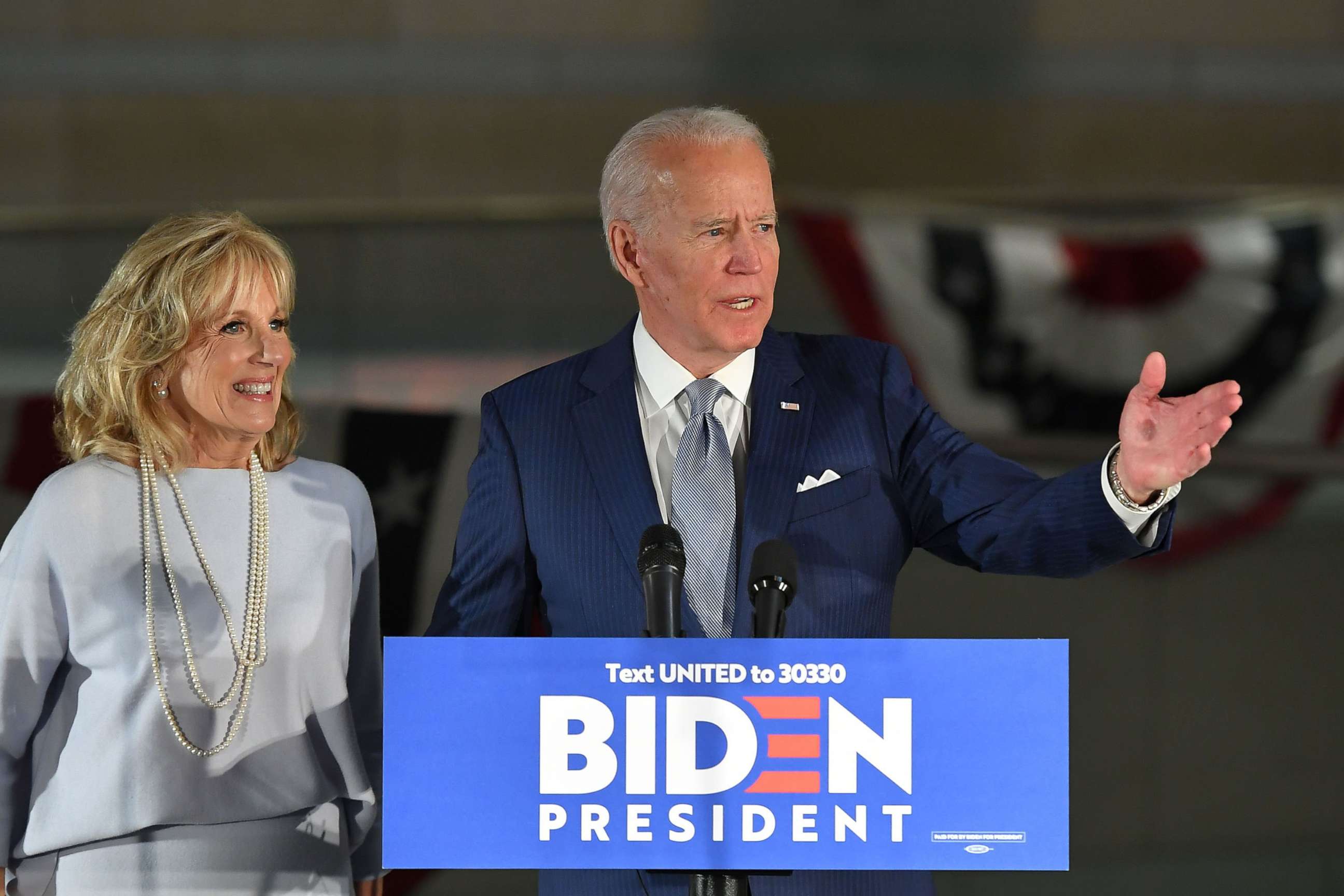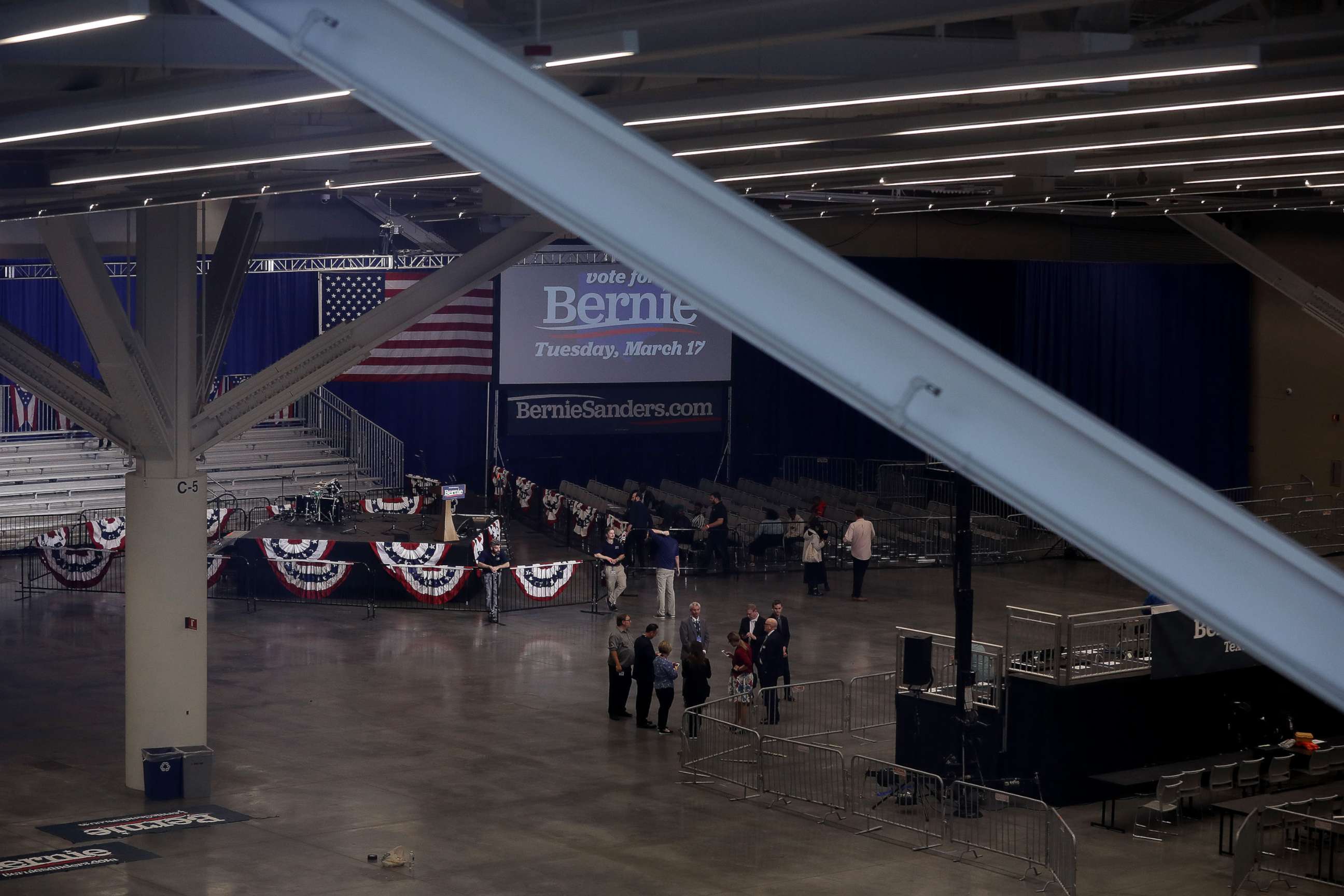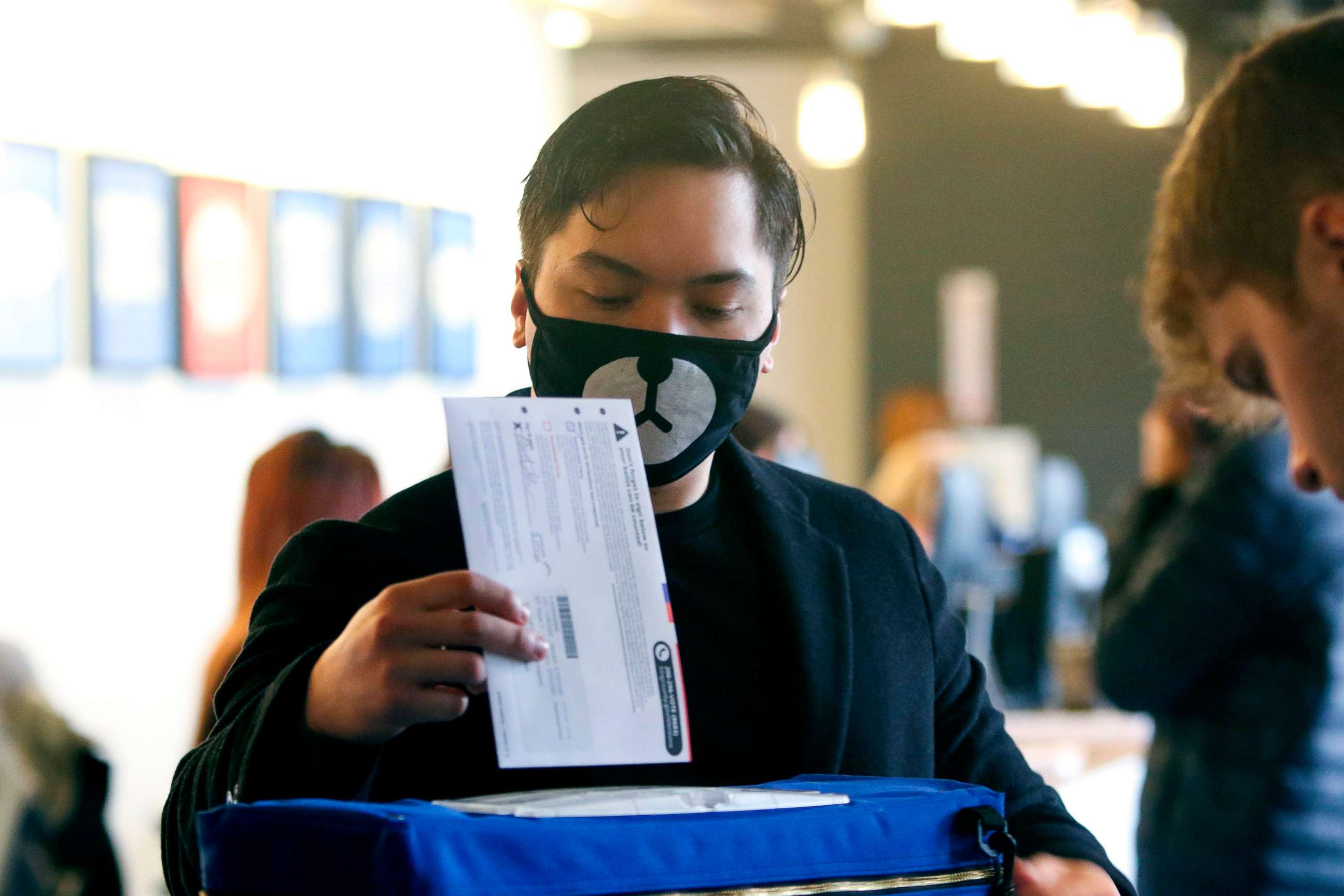Biden sweeps battlegrounds as Democrats glimpse end of primary race: ANALYSIS
Biden's padding a delegate edge that will be difficult for Sanders to overcome.
The Democratic primary campaign is only approaching its midpoint in terms of available delegates. But the end has never looked closer.
Former Vice President Joe Biden followed up a commanding performance on Super Tuesday with perhaps an even more impressive night across six states.
In beating Sen. Bernie Sanders, I-Vt., head-to-head, including in critical Michigan, Biden is now padding a delegate edge that will only become more difficult for Sanders to overcome. With a favorable series of states up next week, in a tense moment across the country, Democrats appear closer than ever to wrapping up their nominating process.

Perhaps more importantly, as Democrats look to the race against President Donald Trump, Biden is now demonstrating a broad coalition that is winning primaries in states Democrats need to flip in November.
The wins are feeding powerful forces inside the Democratic Party calling for a swift conclusion of the nominating season. They leave Biden well-positioned to argue not only that he should be the party's standard-bearer against Trump, but that he's already pretty much there.
"Winning means uniting America, not sowing more division and anger," Biden said at a relatively subdued event in Philadelphia. "It means having a president that not only knows how to fight, but knows how to heal."
Biden thanked Sanders and his supporters for "their tireless energy and their passion," and invited them to join his campaign.
"We share a common goal, and together, we'll defeat Donald Trump," he said.
Sanders was in Vermont as returns came in Tuesday, having canceled a planned rally in Ohio due to concerns about novel coronavirus. Biden also shelved a major public event in Ohio, for similar reasons.

Sanders chose not to speak at all for the evening. It's not clear when or if he will able to return to the campaign trail with his signature rallies, which have continued to outdraw anything organized by the Biden campaign.
Sanders and his supporters have been looking forward to Sunday night's debate -- the first one-on-one matchup, after 10 multi-candidate affairs this cycle. Hours before polls closed Tuesday, the Democratic National Committee announced that there will be no live audience for that debate in Arizona, "out of an abundance of caution" around public health.
Tuesday night was the first test of what a two-way race looks like, in a field that once had more than two dozen candidates. Biden passed that test easily, with his remarkable streak continuing through the South, the lower and upper Midwest and now the West.
Biden cruised in Missouri, a former battleground that's turned red and that had the third-largest number of delegates at stake Tuesday. Hillary Clinton won the state by barely 1,500 votes out of more than 620,000 cast in the 2016 primary. Biden easily out-performed her -- trouncing Sanders across rural, suburban and urban areas, and carrying both self-described liberals and moderates, according to exit polls.
Biden also won huge in Mississippi, as expected. He carried black voters -- who represent some two-thirds of the Democratic primary electorate -- by a whopping 70 points there, according to exit polls.
No victory compares to what Biden accomplished in Michigan, however. The state was perhaps Sanders' signature primary victory of 2016 -- a true surprise that invigorated the rest of his long campaign against Clinton, and then went to Trump in the fall in an even bigger shocker.
Biden narrowly won white non-college educated voters -- a key part of Sanders' coalition in 2016, according to exit polling of Michigan voters who voted in person on Tuesday. Across the 12 Michigan counties that supported Barack Obama for president and then Trump in 2016, Biden was on track to beat Sanders in nine of them.
Biden has taken advantage of the race's head-spinning consolidation. A field that stood at seven major candidates less than two weeks now only has two, not counting Rep. Tulsi Gabbard, D-Hawaii, has no realistic mathematical path to the nomination and was not a factor in any of Tuesday's contests.
The former vice president has racked up high-profile endorsements among more establishment-minded Democrats. That has happened at a moment of national worry about a health crisis, which appears to be playing to the advantage of the former vice president.

With fears of coronavirus growing, Biden was seen as the better candidate to handle a major crisis by a 34-point edge in Missouri and nearly 20 points among election-day voters in Michigan, according to exit polls. Those same voters in Michigan saw Biden as the better candidate to defeat Trump by a 55-32 margin.
Three strong election nights don't erase concerns about a candidate. It was barely a month ago that Biden skipped out on New Hampshire early and wound up finishing fifth in the first-in-the-nation primary state. It's been less than two weeks since he scored his first victory, in South Carolina.
Even on Tuesday, a testy exchange involving Biden and an auto worker in Michigan went viral. That clip was eagerly peddled by the Trump campaign as evidence that Biden is losing his grip.
Still, for a growing number of Democratic voters, it would appear that the race has gone on long enough. At a time of serious concerns and monumental stakes, they've found comfort in Biden -- who is now more comfortable than ever atop the Democratic Party.
The next move belongs to Sanders. The party -- at this moment, and very likely for this election cycle - belongs to Biden.




